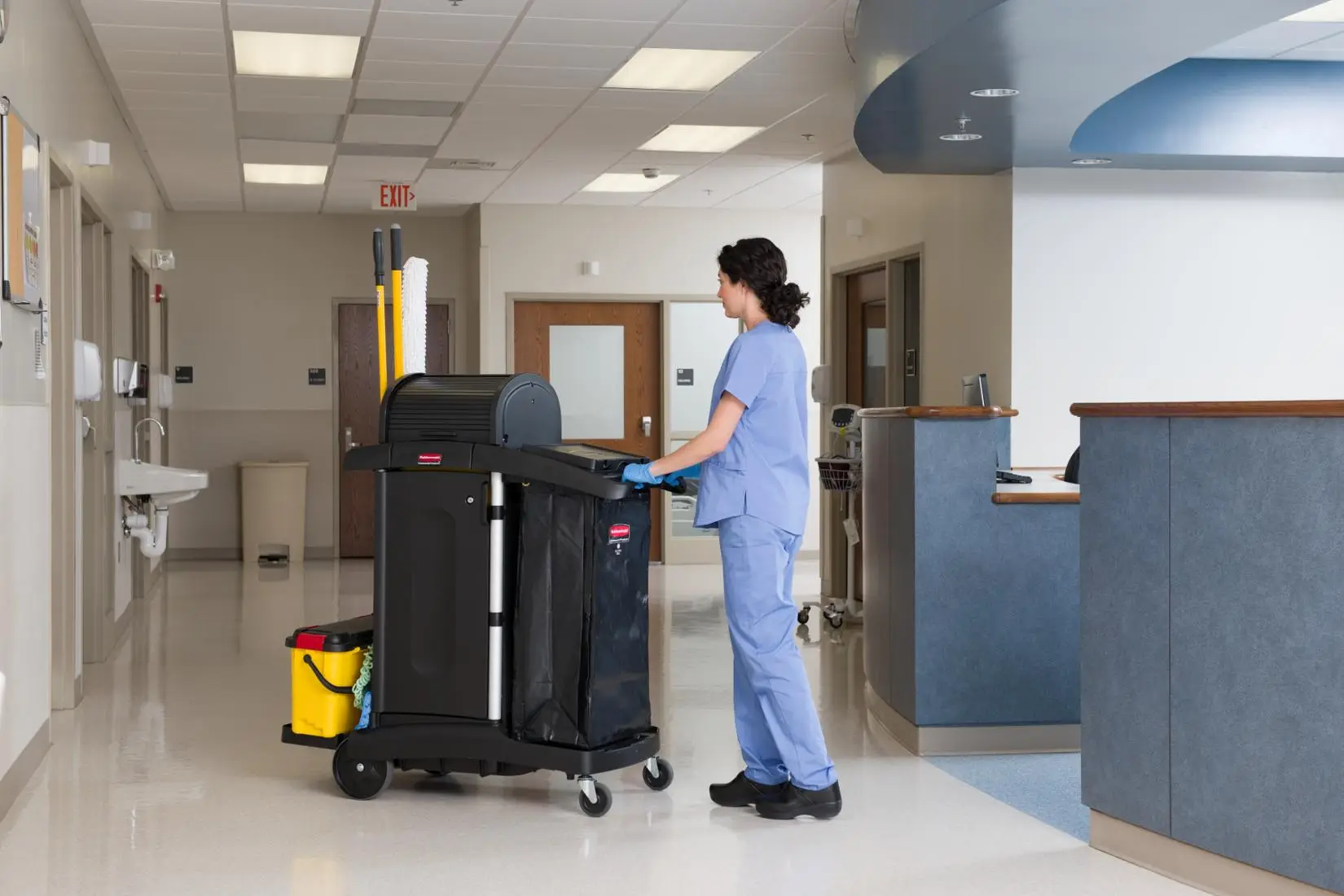Cleaning in Healthcare
Cleanliness is vital in any healthcare organisation, whether you’re a hospital, a dentist, a GP, or a paediatrician. Healthcare deep cleaning helps to ensure the safety of not only the public but also of medical staff. All medical practices must adhere to strict legislation under the Health and Social Care Act 2008. The Care Quality Commission (CQC) monitors all hospitals and surgeries to ensure they are meeting the highest standards of healthcare services. If these conditions are not met, action must be taken. Appropriate cleaning methods and equipment must be used to keep all medical premises spotless.
In high-risk areas, such as Accidents and Emergencies, special attention is needed. This is because the high volume of traffic going in and out increases the risk of spreading infection. They need to be cleaned thoroughly, at least once, sometimes multiple times a day. Cleaning needs to be a constant priority, as many healthcare professionals are operating 24 hours a day. Machines used for cleaning must be compact, to reach smaller areas, and quiet, to avoid disturbing patients or doctors.
Risk of Infection
The risk of infection is the main reason why cleaning of medical practices must be monitored closely. The disease is invisible. It can spread easily from person to person, and there is no way to know who may be carrying it. We must try our best to reduce the spread by constantly washing of our hands. This is not only applicable to patients and visitors but to doctors and nurses too. Germs and bugs can also move from a person to anything that they meet. This means anything can be contaminated, particularly key touchpoints like door handles, hospital equipment and beds.
It is vital for a medical practice to prevent the spread of infection, as the people visiting are already vulnerable. If someone is already unwell, they are at a higher risk of catching a bug or disease. Medical environments need to reach a standard of ultimate hygiene. This consists of effective, deep cleaning which reduces the risk of cross-contamination and the risk of Healthcare-Associated Infections (HCAIs). Nosocomial infections are diseases that are acquired within a hospital, often unrelated to why the patient is there. It is crucial to maintain clean and sterile environments to prevent the spread of diseases like these. Our disinfection cleaning services help reduce these risks dramatically.
Patient Wellbeing
Often new patients can be nervous or anxious about going to the hospital. Fear of their condition worsening, infection and death creates a distrust of medical practices. This is why cleanliness is so important. It helps to build a strong relationship between medical professionals and patients. Patients gain confidence that they are being kept in the best conditions possible. A clean medical practice reduces anxiety and helps patients feel more assured that they are getting the best care available. Medical staff will also be more confident working in a sterile environment, knowing they aren’t putting anyone at risk. It is essential to clean regularly, to create trust and increase the quality of care provided.
Cost-Effective
Keeping healthcare premises clean is not only beneficial for reducing the spread of infection, but it can also reduce unnecessary costs. Nosocomial infections cost the health service around £1 billion a year. If cleaning standards are of the highest level, then it will help to reduce time and money.
Healthcare professionals can also be hit by massive fines if they fail to keep their practices clean. A failure to meet industry standards leads to an increased spread of infection, meaning that more patients extend their stays. This then means that more money is spent to try and fix the problem.
Thorough and meticulous cleaning is an important and essential part of healthcare services. Reducing the risk of infection helps to further build confidence and a relationship with patients. This also allows healthcare professionals to provide work of the highest quality. It is crucial that all healthcare equipment and surface areas that could be contaminated are cleaned and disinfected, meeting industry standards.


